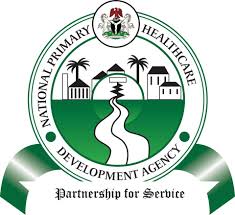Iyemah David
The National Primary Health Care Development Agency (NPHCDA) has appealed for the endorsement of the Community-Based Health Research Innovative-Training and Services Programme for Human Resource for Health (CRISP-HRH).
Dr Garba Bulama, Director at NPHCDA, made the appeal during the 64th National Council on Health (NCH) technical session in Ado Ekiti, Ekiti state.
He highlighted the programme’s significance and emphasised its potential impact on health outcomes.
The initiative addresses the dearth of health workers, particularly Skilled Birth Attendants (SBA), and aims to optimise human resources in the Primary Health Care (PHC) system.
Dr Bulama said that the programme focuses on community-based research, innovative training and collaboration with stakeholders to address challenges in PHC system
He underscored the findings of the 2022 PHC Health Facility assessment, revealing a substantial shortage of SBAs.
He added that “the CRISP-PHC HRH collaboration, involving public health residents, aims to provide training, mentorship and support in underperforming wards.”
Bulama outlined the programme’s components, which included recruitment, training and retention of SBAs, and collaboration with teaching hospitals and federal medical centres.
He said that “the goal is to have four trained SBAs per level 2 PHC facility per ward by 2030.
“The programme’s sustainability is emphasised, with the Federal Government, World Bank IMPACT project, BHCPF, GAVI, and UNICEF providing initial resources.
“State Governments are encouraged to engage through MoUs for phased ownership of employed SBAs, ensuring long-term benefits.
“CRISP’s design focuses on strengthening existing organisations, systems, and processes for sustained impact.”
The NCH is the highest national policy-making and advisory body on health matters in Nigeria.
Its members are the minister of health, minister of state for health, commissioners for health, top management staff of both federal and state ministries of health, their parastatals and agencies.


